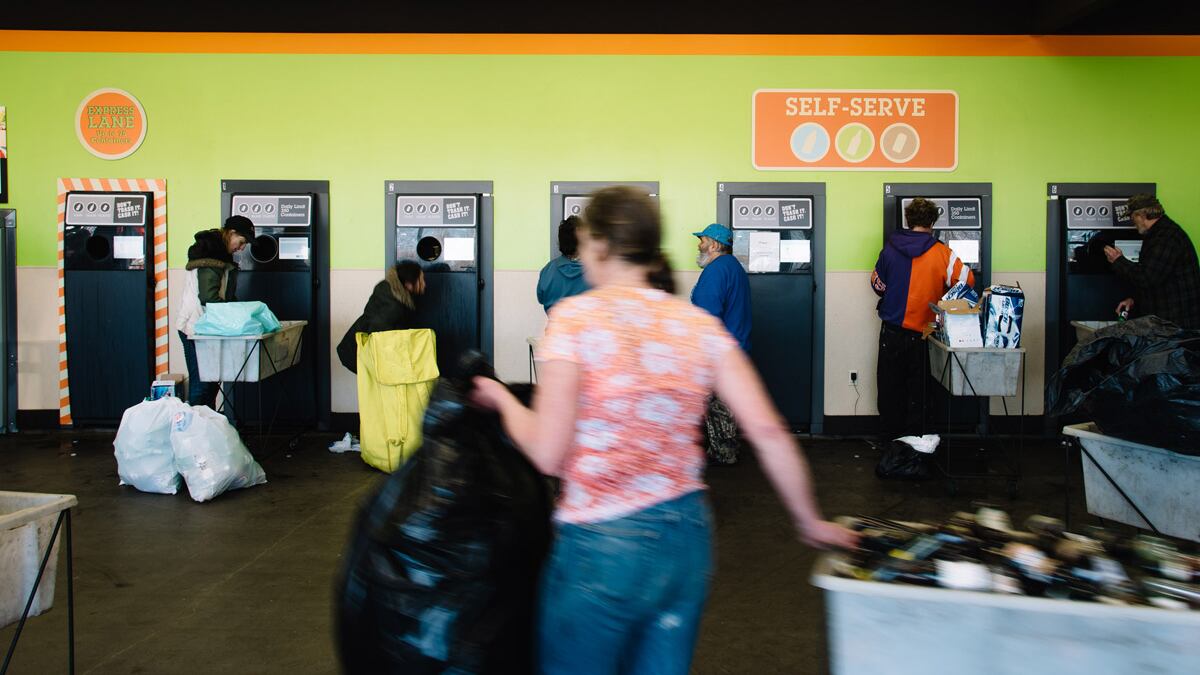At Target downtown, I often see a long line of people, all with full, huge garbage bags, waiting to redeem cans and bottles. Do stores get compensation for handling redemption? Some employees seem to spend their whole shift on it. —Watching Out for the Big Guy
Did you ever ask your mom what the reward was for doing your chores, only to have her reply, "The 'reward' is I don't beat your ass"? No? I guess you didn't grow up in Southern Illinois in the 1980s.
Anyway, the big-box retailers for whom you weep so poignantly find themselves in roughly the same situation: Their "compensation" is that the state doesn't fine them $500 a day and suspend their state liquor license, if they have one. Merry Christmas!
The good news is that raising the deposit to 10 cents has worked—in 2018, more than 90 percent of the cans and bottles sold in Oregon with a deposit were redeemed. The bad news is that it may have worked too well—there's a non-zero chance that in 2019, the redemption rate may exceed 100 percent.
If you're wondering how more containers could possibly be returned than were sold, allow me to draw your attention to that faraway land marked on Portland maps with a simple "Here be Republicans"—Southwestern Washington.
In 2018, Vancouverites began complaining that people were stealing bottles and cans from their recycling bins. In Portland, that's about as shocking as tattoos on a barista, but Washington doesn't have a bottle bill.
That dime per can has proven too rich a prize for some to resist. The sticky Kevins of Portland's bottle rooms report a suspicious number of Washington license plates among high-volume redeemers.
And that's just the ones who have cars. C-Tran (provider of public transit from Vancouver to Portland) actually had to make a rule banning those full, huge bags on its buses.
Right now, while bottle-center workers can send you packing if they believe your wares weren't purchased in Oregon, there's no penalty for trying.
But starting in 2020, a new Oregon law makes it a crime to attempt a bottle return with "fraudulent intent." It's hoped that the law will send a clear message to bottle scammers: You've still got four months—cash in now!
You've got less than four WEEKS to get your tickets to "That's Edutainment," Dr. Know's 10th anniversary TED-talk-on-acid-plus-sketch-comedy gala. Get them at doctorknow.live/tickets.

